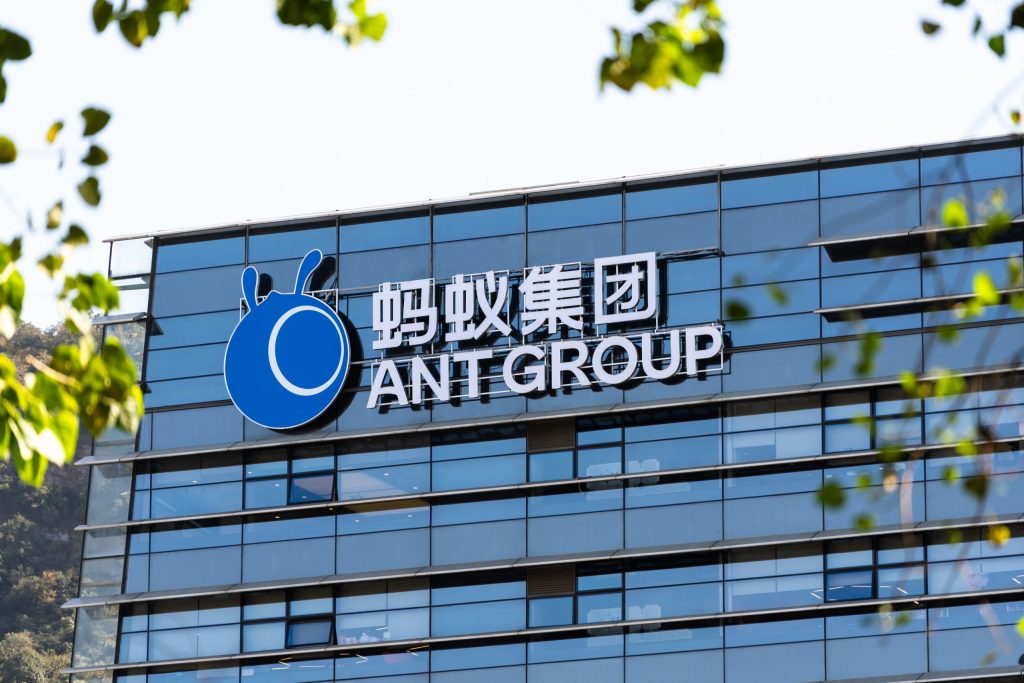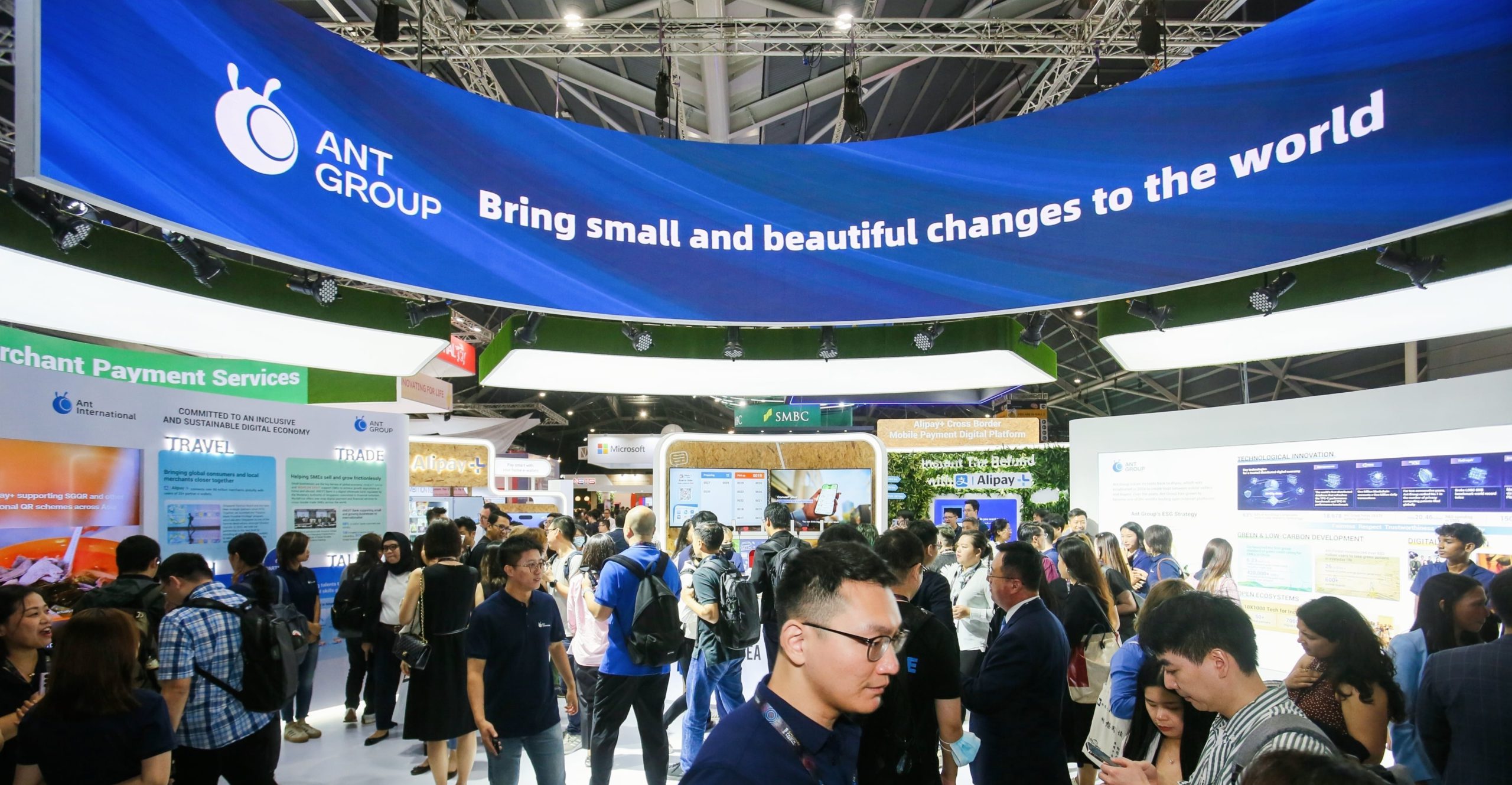Jack Ma's Ant Group Eyes Singapore's Stablecoin Crown: What This Means for the Lion City's Digital Future
Singapore's position as Asia's digital finance powerhouse faces a new chapter as Chinese fintech giant Ant International prepares to challenge for stablecoin supremacy. But beneath the headlines lies a deeper question: is the Lion City ready to welcome the world's biggest players whilst maintaining its hard-won regulatory edge?

The financial world turned its attention to Singapore this week as Bloomberg revealed that Ant International—the overseas arm of Jack Ma's Ant Group—is planning to apply for stablecoin licences in both Singapore and Hong Kong. For a fintech company that processed more than US$1 trillion in global transactions last year, this isn't merely expansion; it's a strategic play that could reshape Southeast Asia's digital payments landscape.
The Trillion-Dollar Pivot
The timing couldn't be more telling. Since Ant Group's record-breaking initial public offering was halted in 2020, the company has been methodically rebuilding its international presence. Now, with its blockchain-powered Whale platform handling a third of those trillion-dollar transactions, Ant International is positioning itself as a serious contender in the regulated stablecoin space.
"The move is designed to bolster the fintech firm's blockchain operation underpinning its cross-border payment and treasury management services," according to sources familiar with the matter. This isn't about entering the crypto speculation game—it's about creating regulated infrastructure for real-world commerce.
The company has already secured partnerships with over 10 global banking giants, including HSBC Holdings, BNP Paribas, JPMorgan Chase, and Standard Chartered. This week alone, it announced a strategic partnership with Deutsche Bank for payment solutions and treasury management.

Singapore's Stablecoin Vetting Process: More Than Just Paperwork
For Singaporean observers, Ant's interest validates what many already knew: the Monetary Authority of Singapore (MAS) has created one of the world's most sophisticated stablecoin regulatory frameworks. But getting approved isn't a given, even for trillion-dollar companies.
Under MAS's finalised framework, stablecoin issuers must meet stringent requirements:
- Value Stability: Reserve assets must be subject to rigorous composition, valuation, custody, and audit requirements
- Capital Requirements: Minimum base capital and liquid assets to reduce insolvency risk
- Redemption Rights: Par value redemption within five business days
- Transparency: Regular disclosure of reserve asset audits and stabilising mechanisms
Only stablecoins meeting all requirements can earn the coveted "MAS-regulated stablecoin" label—a designation that carries significant regulatory and market weight.
Currently, just two entities have received full approval: Paxos Digital Singapore and StraitsX (operator of XSGD). Walter Hessert, Head of Strategy at Paxos, noted that "stablecoins issued in accordance with standards set by a regulator like MAS—known for its rigorous regulatory standards—represent a significant step towards democratising access to commerce and financial services."

The Numbers Game: Singapore's Crypto Reality Check
The broader context reveals a maturing Singapore crypto market that's becoming more selective. According to the latest Independent Reserve Cryptocurrency Index, crypto ownership in Singapore has actually declined from 40% in 2024 to just 29% in 2025, despite the broader market rally.
This isn't necessarily bad news. As Lasanka Perera, CEO of Independent Reserve, explains, 67% of those who sold made gains—suggesting smarter, more strategic investment behaviour rather than speculative fever.
Singapore's cryptocurrency market is projected to generate approximately US$229.4 million in revenue by 2025, according to Statista. More tellingly, 46% of crypto investors in Singapore currently own or have owned stablecoins—highlighting the growing preference for stability over speculation.
Regulatory Tightening: The June 30 Watershed
Ant's timing coincides with a significant regulatory shift. From 30 June 2025, MAS mandates that all Digital Token Service Providers (DTSPs) serving customers outside Singapore must obtain full licensing or cease operations.
This move has already prompted major unlicensed exchanges like Bitget and Bybit to consider exiting Singapore. As MAS clarified: "The money laundering risks are higher in such business models and if their substantive regulated activity is outside of Singapore, MAS is unable to effectively supervise such persons."
The result? A more concentrated but higher-quality ecosystem. Currently, 30 major payment institutions hold DPT licences in Singapore, including established players like Coinbase, Circle, DBS Vickers, and Crypto.com.

What Ant's Entry Could Mean for Singapore
Ant International's potential entry represents more than another licensed operator—it's validation of Singapore's regulatory framework by one of the world's largest fintech companies. The company could potentially achieve an IPO valuation ranging from US$8 billion to US$24 billion if it lists in Hong Kong, according to Bloomberg Intelligence.
For Singaporean consumers and businesses, a licensed Ant stablecoin could offer several advantages:
- Enhanced Cross-Border Efficiency: Leveraging Ant's existing relationships with Alibaba Group and external clients
- Institutional-Grade Security: Utilising privacy computing technologies including homomorphic encryption
- Regulatory Certainty: Operating under MAS's stringent framework provides consumer protection
However, questions remain about market concentration and competitive dynamics. Singapore's approach has been to maintain high barriers to entry whilst fostering innovation—a delicate balance that Ant's presence would test.
The Broader Asian Context
Singapore isn't operating in isolation. Hong Kong's Stablecoins Ordinance takes effect in August, and Ant plans to apply there simultaneously. Luxembourg is also on the company's radar for a related permit.
This multi-jurisdictional approach reflects the global nature of stablecoin operations and the need for regulatory harmony. As noted by industry observers, successful stablecoin issuers increasingly require licensing across multiple major financial centres.
Looking Ahead: Challenges and Opportunities
Several factors will determine the success of Ant's Singapore strategy:
Regulatory Scrutiny: Given Ant's past regulatory challenges in China, MAS will likely conduct thorough due diligence on governance, risk management, and operational independence.
Market Dynamics: With US$243 billion in stablecoins globally circulating as of May 2025, competition is intensifying. Success will depend on differentiation beyond regulatory compliance.
Technology Integration: Ant's Whale platform uses advanced blockchain technology, but Singapore's sophisticated financial ecosystem demands seamless integration with existing infrastructure.
Consumer Trust: Singaporean consumers have shown preference for established, regulated players. Building local trust will be crucial for adoption.

The Verdict: Calculated Optimism
Ant International's interest in Singapore stablecoin licensing represents a significant vote of confidence in the Lion City's regulatory framework and market potential. For Singapore, it's an opportunity to attract a major global player whilst demonstrating that its high regulatory standards don't discourage serious operators.
The broader question isn't whether Ant will receive approval—that depends on meeting MAS's stringent requirements. Rather, it's whether Singapore can maintain its position as Asia's premier digital finance hub whilst welcoming increasingly large and complex players.
As Singapore continues to rank fourth globally in crypto hub indices and maintains its reputation for regulatory excellence, Ant's potential entry could mark the next evolution of the city-state's digital asset ecosystem. For Singaporean businesses and consumers, that could mean access to some of the world's most sophisticated cross-border payment infrastructure—provided it meets the exacting standards they've come to expect.
The next few months will reveal whether Singapore's regulatory rigour can accommodate global ambition without compromising the very standards that made it attractive in the first place.
Let us know what you think about this topic, and what do you want to hear next.
You can now be our community contributor and make a pitch to have your favourite personality be on our show.
Join our community group and drop us your insights on this topic.

-4.png?width=50&name=Square%20(2)-4.png)








Let us know what you think of this post